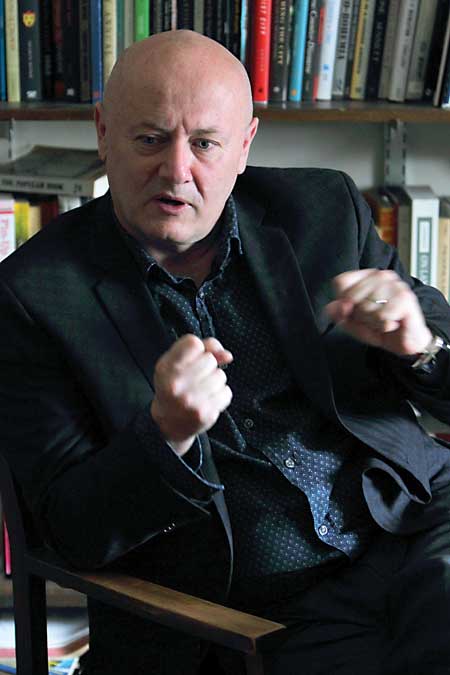
By Elisabeth Faure
Cities have moved to the centre of the policy agenda in Canada. There are good and bad reasons for this.
On the positive side, Canadian cities seem better than any other level of government at spurring citizen engagement, harnessing technological innovation and devising creative responses to problems.
On the negative side, key Canadian cities have faced major crises of governance in recent years. From the media spectacle of Toronto’s City Hall under Rob Ford through the string of corruption scandals in Montreal, we wonder how cities will get the governments they need or deserve.
Since 1995, the McGill Institute for the Study of Canada (MISC) has hosted a major bilingual conference in Montreal on topics that matter to Canadians and are relevant to current public policy concerns. MISC’s next annual conference, The Cities We Need (Les villes qu’il nous faut) will take place in Montreal on February 19 and 20, 2015, at the Phi Centre (407 St Pierre St).
The McGill Reporter caught up with MISC Director Will Straw (Professor, Art History and Communication) to learn what’s in store for this year’s MISC conference.
This year, your conference’s theme is The Cities We Need, or Les villes qu’il nous faut, in French. What made you choose this theme?
Everyone is thinking about cities these days. I’ve said for some time that, with a federal government that is offering very few new ideas about social or cultural life in Canada, most of the exciting thinking is going on at the city level. I wanted to do a conference that would not simply talk about what cities are doing now, but would really try to imagine the ways in which our cities may be made better – more ecological, more equal, more responsive to the needs of people who live in them.
Who are some of the guests who will be at the conference?
As always with MISC conferences, we have a mixture of people involved directly in the focus area of the conference, as well as activists, scholars and other kinds of experts. I’m pleased that we have a range of mayors, from Canadian cities large and small. We have people from non-profit foundations engaged in interesting thinking about cities and citizens. We’re going to have a man named Armando Silva, who is not particularly well known here, but who has done the most interesting academic work on urban culture in Latin America. We’re going to have one of France’s top cultural geographers, Luc Gwiazdzinski, who is changing the way we think about night-time in cities. And I’m particularly proud of the fact that the list of guests will be roughly equal in terms of gender.
You’re doing some things differently this year – can you tell our readers what to expect?
First of all, we have a new venue. In the past, we’ve done conferences at the Faculty Club or close to home at the Omni Hotel. We’ve decided to take this one deeper into the city – to the Phi Centre in Old Montreal. We’re continuing last year’s practice of having a cultural night – this one will be co-sponsored with Pop Montreal, with whom we’ve collaborated in the past, and will explore how cities deal with the problems and opportunities of night-time culture. Again, we’ll have exhibitions of student projects about cities alongside the conference program.
What do you hope guests take away from this conference?
I hope they come away convinced that cities are the level at which we can directly tackle social issues and face new challenges. I hope, as well, that they’ll be exposed to some of the most exciting thinking about cities going on today.
You can learn more about the MISC conference and register here. Registration for the two-day conference, including the opening night reception, is $100 for the general public, and $25 for students.
The Reporter has been publishing interviews with various speakers from The Cities We Need conference up until the conference starts on Feb. 19.
Read the interview with, Dan Mathieson, Mayor of Stratford.
Read the interview with Nathalie Simon, Mayor of Châteauguay.
Read the interview with Bonnie Crombie, Mayor of Mississauga.
Read the interview with Andreina Seijas, an urban night researcher looking at what cities in Latin America and the Caribbean can do to promote their night-time economies and to create quality spaces for work and leisure after hours.
Read the interview with Mark Heyck, Mayor of Yellowknife, and McGill alumnus.
